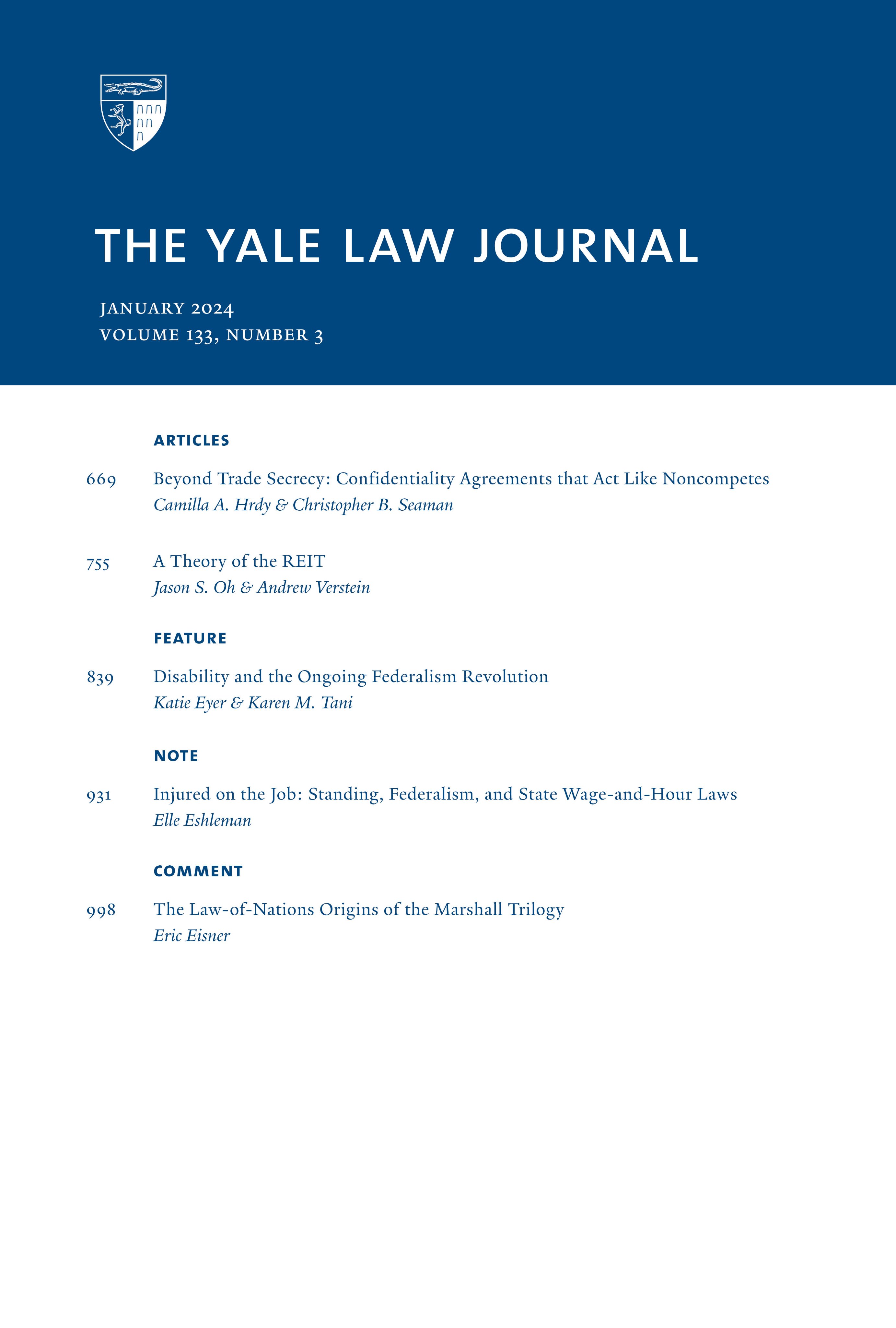清洁屋:国会标准委员会
IF 5.2
1区 社会学
Q1 LAW
引用次数: 4
摘要
鉴于过去两年国会道德丑闻层出不穷,在第110届国会中占多数的新民主党将道德改革作为优先事项也就不足为奇了。但是,尽管众议院和参议院都收紧了它们的实质性规则,但这些规则的执行方式几乎没有受到任何关注。本评论认为,道德规范的执行应由国会自己来执行。剥夺众议院的执行权在宪法上是有问题的(根据“言论或辩论条款”),在结构上是不明智的(考虑到对三权分立的普遍担忧),在制度上也是有问题的(因为它会强化公众对国会根本无法控制自己的看法)。然而,事实证明,国会道德委员会不愿或不能作为有效的纪律机构发挥作用。因此,《评论》建议每个议院效仿英国的议会标准专员,设立自己的标准专员。评论分析了英国办公室的主要特点,并提出了一些可供美国采用的改进建议。评论中描述的制度设计具有双重优点,即在国会众议院内保持道德执行,同时最大限度地减少道德执法者被他们打算监管的人抓获的可能性。本文章由计算机程序翻译,如有差异,请以英文原文为准。
Cleaning House: Congressional Commissioners for Standards
Given the profusion of congressional ethics scandals over the past two years, it is unsurprising that the new Democratic majority in the 110th Congress has made ethics reform a priority. But although both the House and the Senate have tightened their substantive rules, the way the rules are enforced has received almost no attention at all. This Comment argues that ethics enforcement should remain within the houses of Congress themselves. Taking enforcement power away from the houses is constitutionally questionable (under the Speech or Debate Clause), structurally unwise (given general concerns about separation of powers), and institutionally problematic (as it would reinforce the public perception that Congress is simply unable to control itself). However, the congressional ethics committees have proven unwilling or unable to function as effective disciplinary bodies. The Comment therefore proposes that each house create its own Commissioner for Standards, modeled on the Parliamentary Commissioner for Standards in Britain. The Comment analyzes the main features of the British office and suggests a number of improvements for adoption in the United States. The institutional design described in the Comment has the dual virtues of keeping ethics enforcement within the houses of Congress while simultaneously minimizing the possibility that ethics enforcers will be captured by those they are meant to regulate.
求助全文
通过发布文献求助,成功后即可免费获取论文全文。
去求助
来源期刊

Yale Law Journal
LAW-
CiteScore
4.50
自引率
6.20%
发文量
0
期刊介绍:
The Yale Law Journal Online is the online companion to The Yale Law Journal. It replaces The Pocket Part, which was the first such companion to be published by a leading law review. YLJ Online will continue The Pocket Part"s mission of augmenting the scholarship printed in The Yale Law Journal by providing original Essays, legal commentaries, responses to articles printed in the Journal, podcast and iTunes University recordings of various pieces, and other works by both established and emerging academics and practitioners.
 求助内容:
求助内容: 应助结果提醒方式:
应助结果提醒方式:


